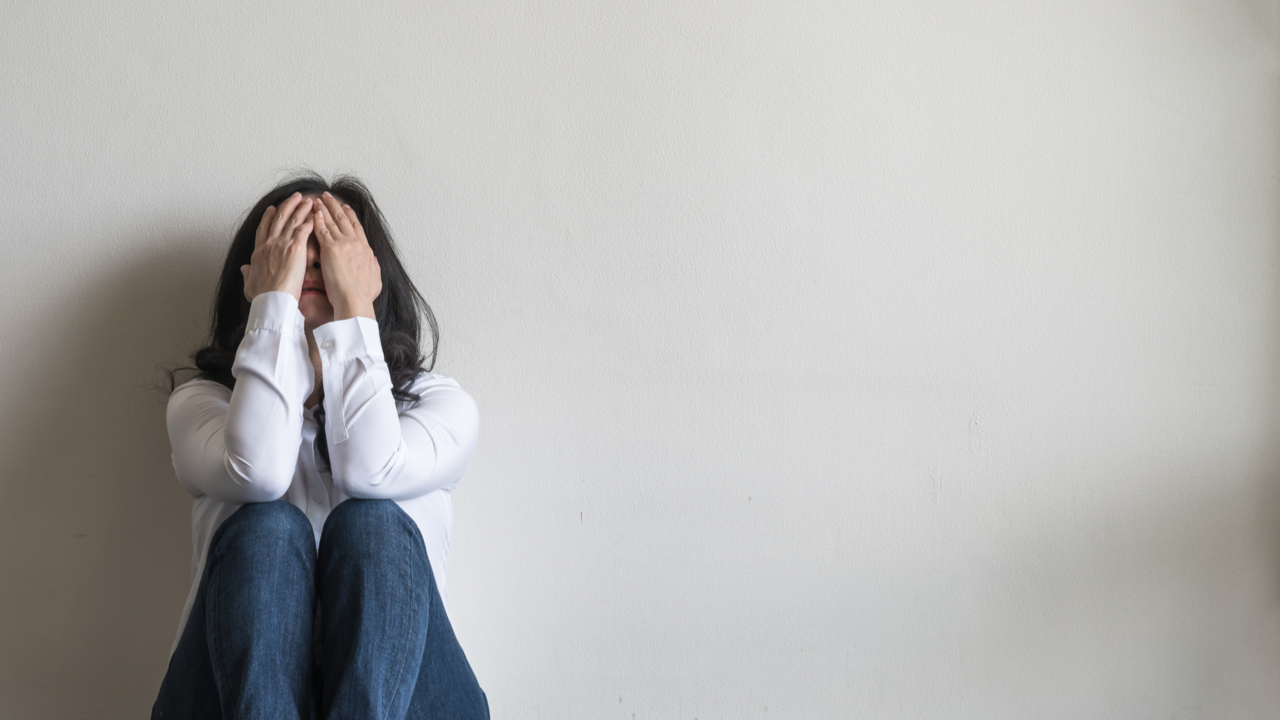Episode 21: Diet and Depression... Could It Be a Cure??

Hey!! I hope this blog finds you well. I hope it finds you happy with your job, in a loving relationship, with overflowing self confidence, health, and joy.
But what if it isn't? What if this blog is finding you barely able to make it out of bed. What if it finds you with that too-familiar dark cloud hanging overhead? What if it finds you just trying to make it through the day?
Well, I'm hoping, if that's you... today's episode might help.
Because today we're talking about the inextricable link between your diet and your mood, and how good nutrition has even been shown to be curative in some cases of diagnosed depression.
Obligatory side note: DO NOT go off any medications without consulting your doctor. The contents of this email are not meant to diagnose, treat, or cure anyone of anything. Use this information at your own risk.
For a long time, the medical community didn't exactly acknowledge the connection between your food and your mood. But as more and more studies have come out, and as the nutritional psychiatry field has emerged, denial is no longer an option.
How does your food affect your mood?
Your diet affects your brain on numerous fronts. If you're eating a high quality diet loaded with vitamins, minerals, and nutrients, it's like you're giving your brain powerful weapons to win the war against depression. So you thrive, you have great focus, and your mood remains relatively stable as your brain runs on all cylinders.
However, when you eat a diet of high-inflammatory foods (which we'll talk about down below), it's like you're giving your brain a limp, rubber sword and saying, "Here, fight with this."
Your diet also directly affects your gut health, and do you know what's produced in your gut?? Serotonin, the happiness hormone.
So it comes as no surprise that if you damage your gut with a harmful diet, you aren't able to produce the hormones that could help lift your spirits from within.
So here's my quick and dirty guide to a healthy gut:
1. Eliminate your problem foods. Which means processed food, added sugar, gluten, dairy, and any food you have sensitivities to (You can use this link to get 20% off your EverlyWell food sensitivity test).
2. Add in supportive supplements like probiotics, enzymes, and L-glutamine.
3. Eat a healing diet, loading up on fiber-rich fruits, vegetables, and whole grains.
What foods should you eat to combat depression and anxiety?
These diets tend to be high in anti-inflammatory fruits, vegetables, unprocessed grains, fish, and fermented foods.
Meanwhile they are extremely low in high-inflammatory processed foods, sugar, and dairy.
Want a more specific 'must add' foods list?
Focus on foods containing serotonin-boosting vitamin D3, protein, tryptophan, antioxidants, selenium, and omega 3's such as fish, dark colored fruits, green, leafy veggies, turkey, eggs, and nuts/seeds.
Now again, this is not about me saying, "Go off your meds and just eat a bunch of fruit!" This is me saying, if you do experience depression and anxiety, and you haven't addressed your diet, it could at the very least provide some supplemental relief with virtually no downside whatsoever.
So what do you have to lose? Give it a try for the next few weeks and let me know how you feel.
----------------------------
Client Spotlight
Meet Gio. If you've listened to my podcast you've heard her co-hosting and possibly have heard her story before.
She came to me 3 years ago with the aim of losing weight to help with her acting career.
As it turned out, the weight loss was only a fraction of her story.
When she started training with me, she ate a diet of almost exclusively pre-packaged, pre-prepared food. She had a dysfunctional relationship with 'treats' and 'cheats', and she suffered horribly from PMDD, sometimes spending stretches of time holed up on the couch, not wanting to do much else.
Over the course of the last 3 years, she has done some deep dive work on understanding where her relationship with food comes from.
She's learned to eat to support her hormones so her PMDD symptoms have diminished.
And her boxed meals have been replaced by a diet almost entirely of home cooked, healthy food.
Just the other day she was telling me how much her creativity and productivity have skyrocketed since taking control of her health.
She is a beautiful example of the power of persistence, the importance of looking deep within, and the ability to turn around years of self-sabotaging habits to create a healthy, happy lifestyle.
Here's what she has to say:
"I've had several personal trainers in the past, but none have given me the additional time or attention to help me achieve the mind/body connection that has helped me heal my dysfunctional relationship with food."
Click here to schedule your weight loss & wellness consultation today.
References: medicalnewstoday
This post may contain affiliate links that I benefit from financially. Though I will never recommend anything I haven't tried and loved.

